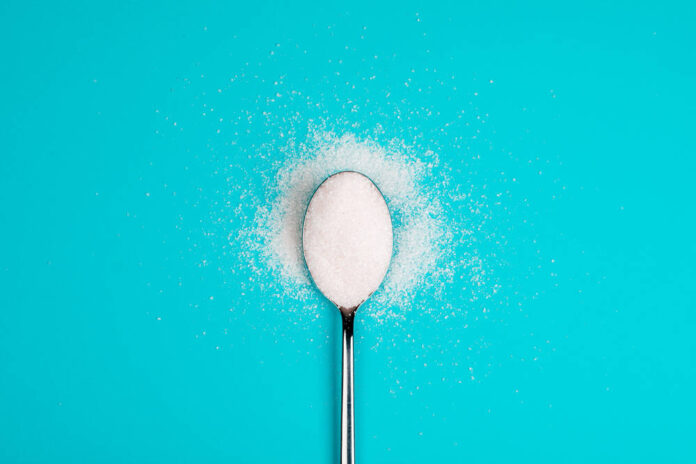
The artificial sweetener Splenda (sucralose) differs somewhat from other products in this category in that it is actually made from real sugar. But that does not mean Splenda is without health dangers associated with other artificial sweeteners. In fact, recent research has found that the use of sucralose may interfere with immune system function and more.
What is Splenda?
Splenda is the brand name of the artificial sweetener sucralose, which is a chemically altered form of sugar. This chemical modification makes sucralose 600 times sweeter than real sugar with no aftertaste and virtually no calories. To give sucralose this nearly zero calorie count, parts of the sugar molecule called hydroxyl are exchanged for chlorine.
Splenda is often used by people with diabetes because it doesn’t cause their blood sugar levels to spike. However, scientists at the Francis Crick Institute in London have found evidence that Splenda may suppress immune system function when consumed at high doses.
Read about Does sucralose help you lose weight?
The Splenda study
The study, which appeared in Nature, was conducted on mice who had either a bacterial infection or a tumor. Researchers fed the mice amounts of sucralose that were “equivalent to the acceptable daily intake (ADI) recommended by the European and American food safety authorities.” The use of sucralose impacted the animals by lowering the activation of T cells, which are essential for immune function. The mice were less able to fight off infection and cancer. When the mice were no longer given sucralose, their T cells returned to normal function.
Sucralose is not inert
Scientists have long debated whether sucralose is inert (chemically inactive). However, the Nature study findings have caused researchers to conclude that “sucralose is not an inert molecule and may affect human health,” adding to findings of an earlier animal study in the Journal of Toxicology and Environmental Health. In that study, the authors reported that sucralose is metabolized. Although traces of sucralose were not seen in urine and feces two weeks after the animals were given the sweetener, it was found in fat tissue. This raises further questions about the safety of the sweetener.
Read about a new study that finds sucralose does affect blood sugar and insulin
Sucralose and other health issues
Sucralose has demonstrated other health risks based on previous studies. In a study published in BJM, for example, this artificial sweetener was associated with a higher risk of coronary heart disease. At the American Society for Biochemistry and Molecular Biology annual meeting on April 2-5, 2022, researchers reported that sucralose disrupts the function of a protein critical in liver detoxification and the breakdown of certain drugs.
Is sucralose good for your gut? A 2022 study in Microorganisms showed that consuming sucralose for 10 weeks caused gut dysbiosis and changed insulin and sugar levels in healthy adults.
An animal study showed that consuming sucralose during pregnancy inhibits the development of the intestinal system and causes gut dysbiosis in infants while promoting non-alcoholic fatty liver disease in adulthood.
Bottom line
Splenda (sucralose) is associated with numerous health hazards. In addition to the health warnings already discussed, heating foods that contain sucralose at high temperatures may create toxic compounds, which increases the risk of carcinogenicity. The use of sucralose and foods containing is best avoided. Instead use natural sweeteners like honey or maple syrup and sugar in moderation.




